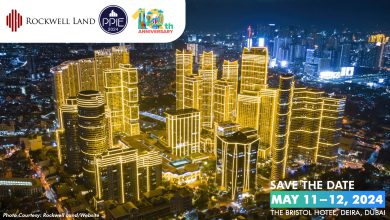The Philippines’ Q2 2019 GDP growth was the slowest in four years due to the delayed 2019 national budget implementation and public construction decelerating due to its ban leading up to May 2019 elections.
This was according to the recent findings of Colliers Research international. Based on the recent report, the current economic state is for property developers to expand their office, residential and hospitality footprints outside Manila. “Developers should seize this opportunity to build more offices in key hubs outside Manila, and acquire land parcels near soon-to-be expanded regional airports.”
“Hoteliers should continue facilitating intra-Asian demand, by implementing mobile payment platforms popular with Chinese and Korean tourists,” Colliers explained.
Economic status
In the second quarter of 2019, the Philippines’ Gross Domestic Product (GDP) grew by 5.5%. This marks the slowest growth since the 5.1% recorded in 2015.
The philippine government said that the slower-than-desired growth was due to the delay in passing the 2019 national budget, the occurrence of El Nino phenomenon, the current trade war between the United States and China, and the ban on public construction activities a month prior to the May 2019 senatorial elections.
Colliers International Philippines research said the businesses are optimistic that the economy will still grow for the remaining days of the years since public construction restarted after the midterm elections season, and full implementation of the national budget for this year.
“We see this having a positive impact on the property segment. Public construction contracted by 27% in Q2 2019 but was offset by a 23% rise in private construction, which accounts for about 70% of the country’s construction sector. This indicates a strong appetite for office towers, residential condominium, malls, hotels, and industrial parks throughout the country,” Joey Roi Bondoc, Head Market researcher said.
“If the contraction of public construction persists for the remainder of 2019 it is likely to become a growing concern among developers as public projects such as roads, bridges, and airports should help decongest Metro Manila and raise land and property values outside the city. The public projects also help dictate the long-term plans of developers,” he added.
The research also said they attribute the decline to the slower approval of PEZA applications in Metro Manila and uncertainty regarding the approval of the second package of the comprehensive tax reform program.
Sustained domestic demands were due to traditional and non-outsourcing firms including those involved in healthcare services, construction & engineering, food & beverage, flexible workspace, and the professional services sectors.
Colliers International research also said to encourage increased office absorption, the government should lift the moratorium on PEZA approvals in Metro Manila and approve the measures amending the Foreign Investments and Public Utilities acts which should open more sectors such as telecommunications, transportation, and retail to increased foreign participation.
This should result in greater absorption of office space as we saw with international banks taking up more office space in Metro Manila following the enactment of the Full Entry of Foreign Banks law in 2014.
Traditional markets sustain occupancy
Based from the recent Department of Tourism (DoT) data, foreign arrivals reached 4.1 million in H1 2019, up 11.4% every year. This increase has been contributing positively to the Philippine economy.
Philippine Statistics Authority (PSA) reveals that the hospitality sector’s contribution to the Philippine GDP has risen from 7.9% in 2012 to 12.7% in 2018. Increasing arrivals and spending has also generated jobs for key hospitality segments such as passenger transport, hotels, travel operators, and retailers of tourism goods.




